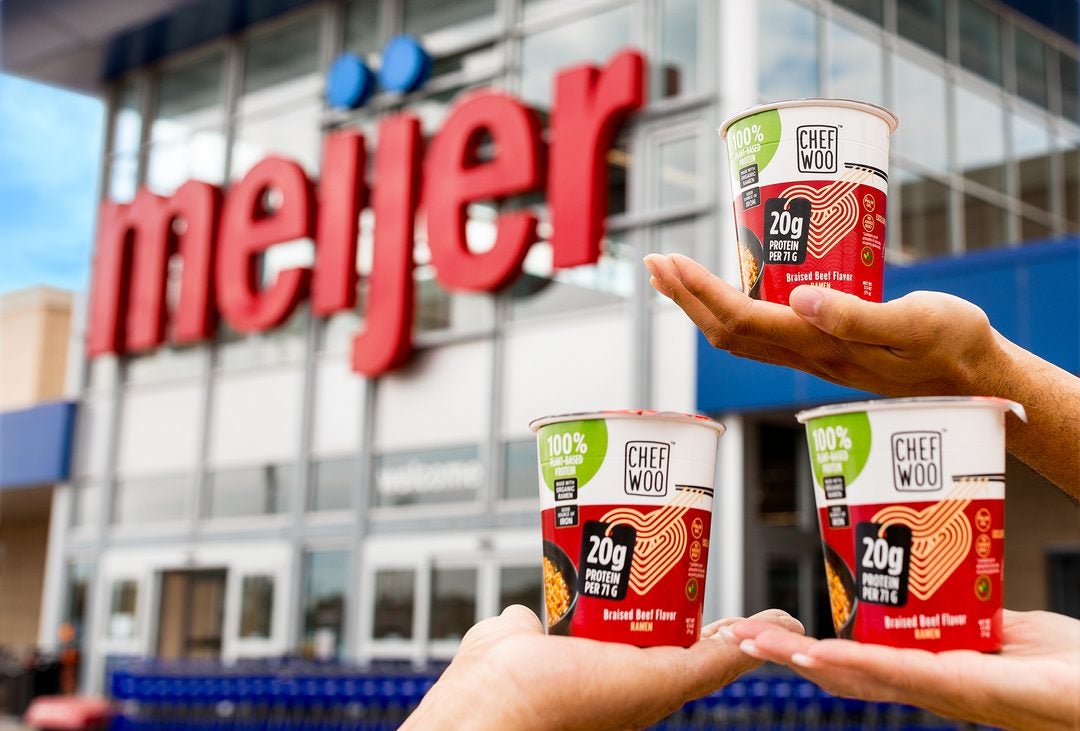
Borealis Foods has issued a warning over its future viability unless the Canada-based ramen noodles supplier raises new funds.
A filing with the US Securities and Exchange Commission (SEC) yesterday (21 May) showed the business delivered a loss in the first quarter after going public in the US in February with a listing on the Nasdaq exchange.

Discover B2B Marketing That Performs
Combine business intelligence and editorial excellence to reach engaged professionals across 36 leading media platforms.
“The company suffered recurring losses from operations through March 31, 2024, that raise substantial doubt about its ability to continue as a going concern,” Oakville, Ontario-based Borealis Foods said in the filing.
“The company was in a net-loss position and had negative cash flows from operations for the periods ended March 31, 2024, and 2023.”
Borealis Foods was co-founded by CEO Reza Soltanzadesh in 2019 before entering a combination agreement with Kazakhstan-registered and New York-listed Oxus Acquisition Corp. early in 2023.
The SPAC merger, or reverse recapitalisation, concluded this February and includes the Borealis Foods’ subsidiary Palmetto Gourmet Foods.

US Tariffs are shifting - will you react or anticipate?
Don’t let policy changes catch you off guard. Stay proactive with real-time data and expert analysis.
By GlobalDataPalmetto manufactures plant-based instant noodles from a 475,000 square-foot US factory in Saluda, South Carolina. It supplies the high-protein retail brands Chef Woo and Ramen Express.
In a statement to shareholders in April, Soltanzadesh said a Woodles whole-grain high-protein noodles range had been launched in US schools, while retail distribution of Chef Woo and Ramen Express increased by 19% in 2023.
The brands are sold in 18,000 US stores and more than 3,300 in Canada, with 700-plus distribution points in Mexico, he said, adding that e-commerce sales had also increased via customers such as Amazon.
However, in yesterday’s SEC filing, Borealis Foods said two customers accounted for around 58% of net revenues in the first quarter and 73% when a third customer was included, dominated by the US and Canada markets.
Borealis Foods’ shares were down 12% at $6.27 in per-market trading today.
Net revenue for the three months fell 5% to $7.9m. While gross profit turned positive, to the tune of $242,573, the business generated a net loss of $8.4m, widening from a $5.9m loss in the same quarter a year earlier.
Operating profit was also in the red at $7m, compared to a $4.6m loss.
“The company expects lower operating costs for the remainder of 2024 as the company incurred approximately $1,506,000 of transaction expenses, and $1,273,000 of employee stock compensation expenses related to the reverse recapitalisation,” according to the SEC filing.
“As a result, substantial doubt continues to exist about the ability of the company to continue as a going concern within one year from May 20, 2024.”
Borealis Foods, which has attracted UK celebrity chef Gordon Ramsay as a backer and brand ambassador, secured a $50m cash injection from an unnamed entity, Soltanzadesh said in his April note to shareholders.
Nevertheless, as of 31 March the company had $13.9m of debt coming due in 2025, a further $9m in 2026, and $1m and $12.2m, respectively, in the following two years, according to the filing.
“Our ability to continue as a going concern is dependent on our ability to obtain additional equity or debt financing,” Borealis Foods said.
“However, if adequate funds are not available to us when we need them, we could go into default on our outstanding indebtedness, which would, in turn, permit our creditors to enforce remedies against us and cause us to consider reducing, discontinuing, or selling operations or seeking protection from creditors, and further raise substantial doubt about our ability to continue as a going concern.”
Just Food has approached Borealis Foods for comment to ascertain whether the SEC filing is more of a cautionary note of warning or whether the financing situation is as serious as it sounds.
The company added in the filing that the timing of certain sales into schools had been delayed from 2023 into 2024. It added: “Numerous bids have been awarded which we anticipate will result in a significant increase in school orders for the 2024-2025 school year.”




